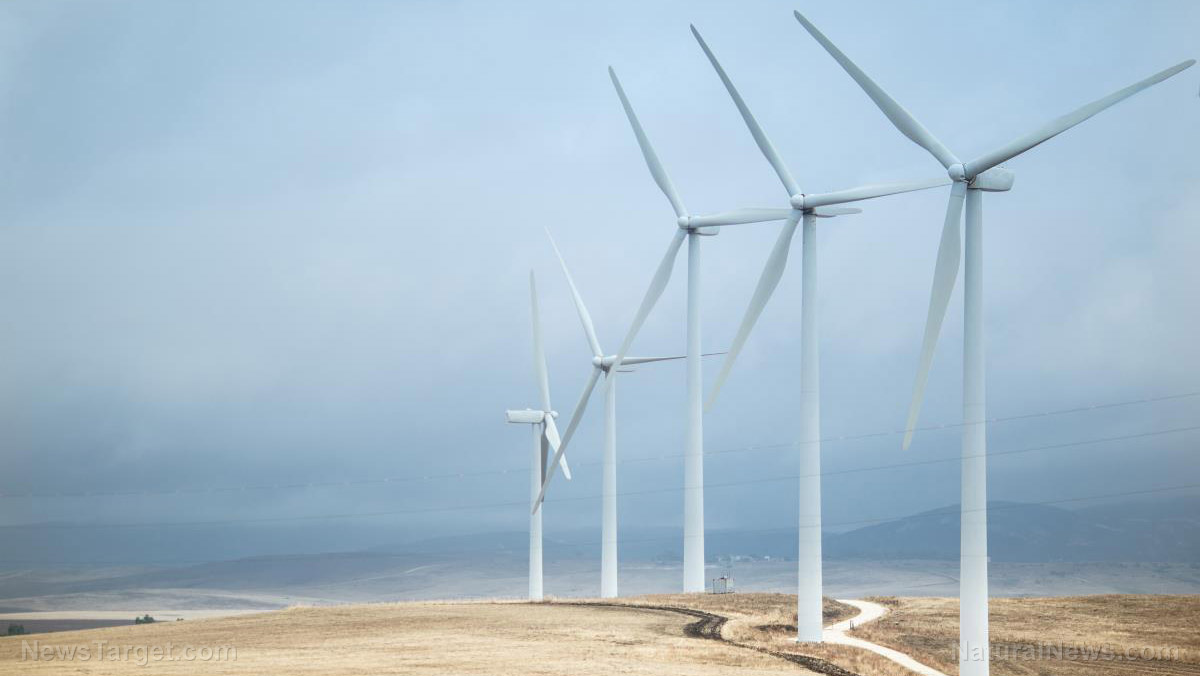21 Key U.S. natural gas producers were hacked just before Ukraine invasion: a warning shot?
03/10/2022 / By Ethan Huff

Back in mid-February just hours before Russia invaded Ukraine, nearly two dozen major natural gas suppliers and exporters were hacked.
Among them was Chevron Corp., Cheniere Energy Inc., and Kinder Morgan Inc., according to reports.
The attacks targeted companies linked to producing liquefied natural gas, or LNG, as part of a larger effort to infiltrate critical sectors of the energy sector, claims Gene Yoo, CEO of Los Angeles-based Resecurity Inc., which discovered the hack.
The attacks occurred on the eve of Russia’s invasion of Ukraine at a time when energy markets were already volatile due to tight supplies.
Resecurity launched an investigation into the matter, identifying one hacker linked to a wave of attacks against European organizations. Microsoft Corp. attributed that incident to an alleged Russian hacking group called Strontium.
According to Yoo, the hackers were looking to pay top dollar on the dark web for access to personal computers belonging to workers at large, U.S.-based natural gas companies.
Yoo says the hackers’ servers were identified and a vulnerability was found in their software, which allowed Resecurity researchers to obtain files from the machines to see what the attackers had done.
Some of these files were later shared with Bloomberg News, which reported on the incident.
Yoo explained how the files show that “in a two-week blitz in February, the attackers gained access to more than 100 computers belonging to current and former employees of 21 major energy companies.”
“In some cases, the hackers compromised the target machines themselves, and in others they bought access to specific computers that were already infected by others, offering as much as $15,000 for each one,” he added.
US official warned about the need for “heightened awareness” just days before cyberattack
The motive is said to be unknown, but Yoo believes they were state-sponsored hackers. He refused to elaborate on the meaning of this when pressed.
This “pre-positioning,” as he called it, may have been used to springboard into protected corporate networks.
“For that kind of operation, computers belonging to former employees can be just as valuable as those used by current workers, because many companies are slow or fail to cut off remote access when someone leaves,” a report citing Yoo claims.
Demand for LNG has soared in recent months amid skyrocketing inflation. And that inflation has only worsened ever since Russia invaded Ukraine.
“In the months before the invasion, the U.S. became the world’s top supplier of LNG, and almost two out of three cargoes sailing from its shores were heading to natural gas-hungry Europe,” reports indicate.
In response to the Russian invasion, Germany, Europe’s largest natural gas market, said it is expediting the construction of two new LNG import terminals. This is a first for Germany, which has never before imported LNG.
Germany has also reportedly halted the certification process for the Nord Stream 2 pipelines, which would have supplied natural gas from Russia. However, now that everyone is suffering from Russia Derangement Syndrome, the Nord Stream 2 project has been scrapped.
Just days before the hack, officials in the United States urged critical infrastructure operators to “adopt a heightened state of awareness” for Russian state-sponsored attacks. Did the U.S. pull off yet another false flag attack?
“Just more false flags to blame on Russia to start the next world war,” wrote someone at Technocracy.news.
“I could never see the logic why any business let alone any government would put their servers on line that contained sensitive information or trade secrets,” wrote someone else.
“I’ll make sure to keep my main computer disconnected from the internet. The backup computer will contain nothing on it that I care about once I get home internet service.”
More related news can be found at WWIII.news.
Sources for this article include:
Submit a correction >>
Tagged Under:
big government, chaos, Cheniere, Chevron, computing, cyber attack, cyber war, energy supply, glitch, hacked, internet, LNC, national security, natural gas, power, power grid, Russia, Ukraine, war
This article may contain statements that reflect the opinion of the author
RECENT NEWS & ARTICLES
NewEnergyReport.com is a fact-based public education website published by New Energy Report Features, LLC.
All content copyright © 2018 by New Energy Report Features, LLC.
Contact Us with Tips or Corrections
All trademarks, registered trademarks and servicemarks mentioned on this site are the property of their respective owners.





















